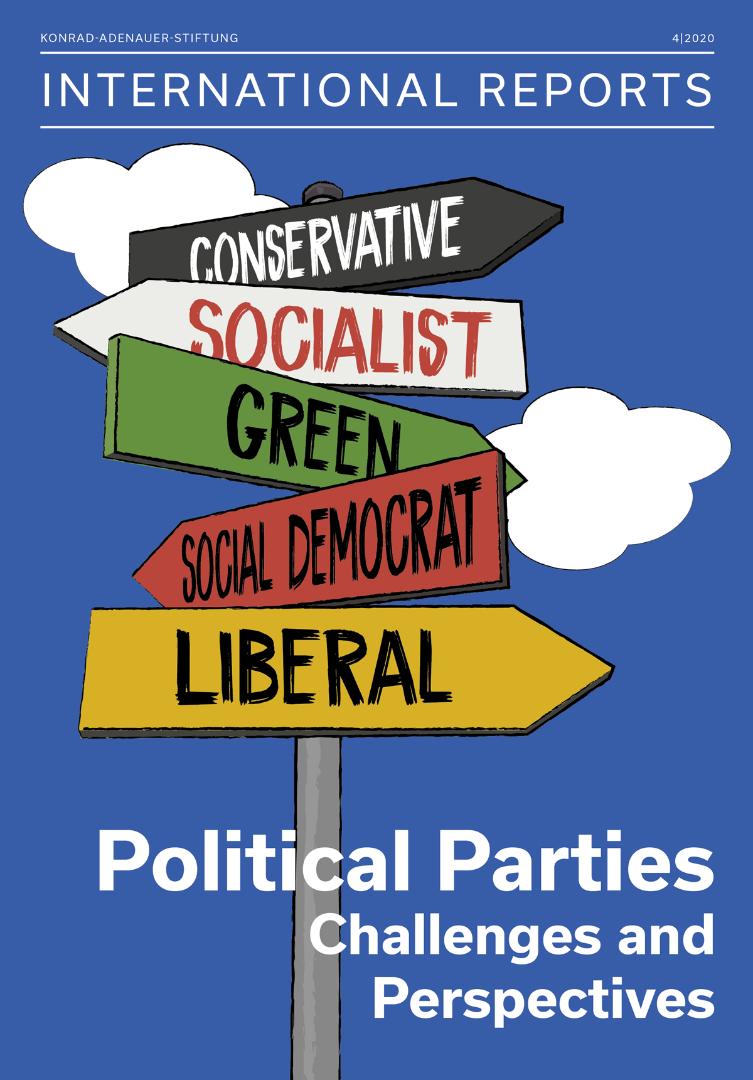-
Editorial of the issue "Political Parties – Challenges and Perspectives"
Political parties are a pillar of the democratic system. They assume central functions such as promoting citizen participation in political life and shaping public opinion. They have a major impact on our country’s political development and serve as an interface between state organs and the public. Parliamentary democracy is ultimately always party democracy.
by Gerhard Wahlers
-
Voting and Campaigns in Times of Polarisation
An Assessment Based on International Examples
Both democratic and non-democratic elections, and the hopes people place in them, raise the same basic questions: Who has the right approach to challenges of the future? Who will make it better for us in the years to come? These questions moved people in the past and continue to do so.
by Frank Priess
-
New Kids on the Block
The Potential of New Parties in Europe
They are the New Kids on the Block – the new political parties in Europe. They describe themselves as being new and different. Some of them have achieved electoral victory in no time at all. The reasons for their success are varied and country-specific, but they also reflect a general shift in society. These parties not only change the party landscape, but also pose new challenges for the established parties. What does this mean for the future of party democracy and what opportunities do these changes afford to the established political parties?
by Franziska Fislage
-
Parties in Crisis, Instability and “the Will of the People”
Recent Trends in Tunisia’s Young Democracy
January 2021 marks the tenth anniversary of the revolution in Tunisia, but the celebrations will be tempered by a strong sense of disappointment at developments since then. Representative surveys reveal that the vast majority of Tunisians are unhappy with their country’s political, economic and social situation, and believe the country is moving in the wrong direction.
by Holger Dix
-
Strategic Partners under Pressure
Seven Theses on the State of Party-Based Democracy in Latin America
As far as its party systems are concerned, Latin America bears a much stronger resemblance to Europe than the so-called Global South. If they are to ride the storm of social protests, populist cure-all promises, and Chinese advances, Latin America’s parties will need strategic support from Europe. In a time of global changes, Latin America’s shared values makes it an indispensable partner.
-
Mexico’s PAN
An Opposition Party with the Potential to Govern?
The Partido Acción Nacional (PAN) can look back at 81 years of history and tradition, although it has spent most of this period in opposition. In the run-up to Mexico’s super election year of 2021, the party is once again keen to demonstrate its ability to govern at local and state level. In this way, it aims to position itself as a real alternative at the national level for the next presidential elections in 2024. However, the challenges it faces are immense in light of the country’s structural problems and of the historical peculiarities of the Mexican party system.
by Hans-Hartwig Blomeier, Ann-Kathrin Beck
-
Parties in Africa
The Case for Increased Engagement with a Neglected Issue
Thirty years ago, the vast majority of sub-Saharan countries chose the path of parliamentary democracy. What is the state of the multi-party systems today? At first glance, the verdict is: defective. However, this generalisation is dangerous and overlooks important differences and new tendencies. Below are six arguments for further research.
by Benno Müchler, Christoph Schmidt







